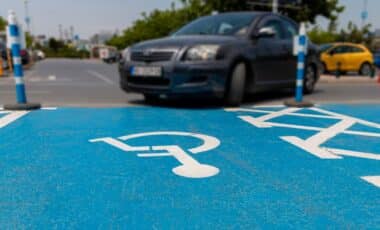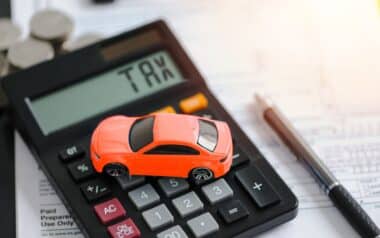UK motorists must prepare for significant DVLA rule changes coming into effect soon, impacting vehicle taxation, number plates, and company car fuel rates. Drivers could face fines of up to £1,000 for non-compliance, while new regulations will also affect electric vehicle owners.
As reported by DevonLive, these updates include stricter enforcement measures and AI-driven monitoring for mobile phone use and seatbelt violations. With major changes ahead, staying informed is crucial to avoid unexpected penalties and additional costs.
Changes to Company Car Fuel Rates
As of 1 March 2025, new Advisory Fuel Rates (AFRs) set by HMRC will come into effect, impacting the cost of fuel for company car users. Among the changes, diesel cars with engines up to 1,600cc will see an increase from 11 pence per mile (ppm) to 12ppm.
For petrol vehicles with engine sizes between 1,401cc and 2,000cc, rates will rise from 14ppm to 15ppm. Meanwhile, electric vehicle rates will remain unchanged at 7ppm, allowing EV drivers to benefit from lower operating costs.
These rates are calculated based on data from the Department for Energy and Net Zero and will influence reimbursement calculations for business-related travel.
New Number Plates and Regulations
From 1 March 2025, vehicles registered in the UK will receive the new ‘25’ number plates, indicating the year of registration. The DVLA issues new number plates twice annually, in March and September.
The second batch for the year, released in September, will feature ‘75’ as the third and fourth characters, indicating registration in the latter half of the year.
Motorists considering personalised number plates must ensure they comply with DVLA regulations, which impose strict rules on the shape, font, and colour of plates. It is illegal to display a registration that falsely implies a vehicle is newer than it is.
Visibility and readability requirements must also be met. Any failure to adhere to these regulations could result in a £1,000 fine and confiscation of the plate. To assist motorists in finding compliant custom plates, the DVLA provides a personalised plate finder service.
Electric Vehicle Taxation Changes
Currently, electric vehicle (EV) owners benefit from zero Vehicle Excise Duty (VED), but this will change from 1 April 2025. New EVs registered from that date will be subject to a first-year rate of £10.
From the second year onwards, beginning in 2026, EVs will be required to pay the standard tax rate, which currently stands at £190 per year for cars and £335 for commercial vehicles.
At present, owners of petrol and diesel cars pay £190 per year, while van operators face an annual fee of £335. Motorcycle owners incur a much lower annual tax of £25.
While the new EV tax rates will be lower initially, they are expected to increase in future years, aligning EV taxation more closely with that of petrol and diesel vehicles.
New AI Technology to Detect Mobile Phone Use and Seatbelt Violations
A new AI-driven enforcement system, tested by ten UK police forces in collaboration with National Highways, is expected to be implemented nationwide. The system has been under trial since 2021 and is designed to detect motorists engaging in dangerous behaviour, such as using a mobile phone while driving or failing to wear a seatbelt.
Drivers caught using a mobile phone while behind the wheel could face a £1,000 fine and six penalty points, while those who fail to wear a seatbelt may receive a £500 fine. A more recent trial of the system began in February 2024 and is set to conclude in March 2024.
The technology is capable of capturing footage of offending drivers and forwarding it to police forces for enforcement.
Stricter Speed Limits and Emissions Regulations
In addition to these upcoming changes, UK drivers have already seen recent adjustments in speed limits and emissions rules. Some regions in England and Wales have introduced 20mph zones in an effort to improve road safety.
Meanwhile, stricter emissions regulations have resulted in the expansion of Low Emission Zones (LEZs) and Ultra-Low Emission Zones (ULEZs), leading to additional charges for drivers of older or high-emission vehicles.
With these regulatory changes coming into effect, motorists should review fuel rate adjustments if they use a company car to ensure they are reimbursed correctly.
Those looking to purchase a personalised number plate should verify compliance with DVLA regulations to avoid potential fines. Electric vehicle owners should prepare for VED tax changes from April 2025, as rates will begin to rise gradually.
Drivers should also be aware of the AI enforcement system and take extra care to avoid using their mobile phones or failing to wear a seatbelt, as fines for these offences are significant.
Additionally, staying informed about changes in speed limits and emission zone regulations will help motorists avoid unexpected charges.
These updates reflect the UK government’s ongoing efforts to modernise vehicle taxation, enhance road safety, and adapt to the evolution of automotive technology.









